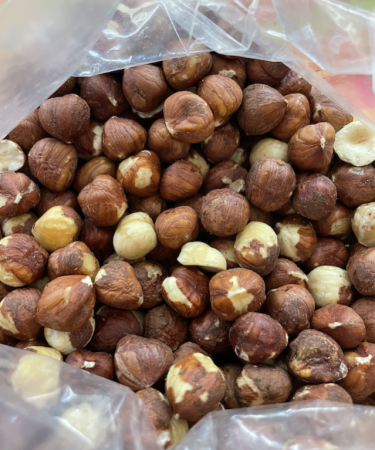Walnut
Walnuts are tree nuts that belong to the Juglandaceae family, with the most common varieties being English (or Persian) walnuts and black walnuts. They are characterized by their rich, slightly bitter flavor and a distinct, wrinkled shell. Walnuts are highly nutritious, packed with healthy fats, protein, fiber, vitamins, and minerals. They are often consumed raw, roasted, or used in cooking and baking. Additionally, walnuts are recognized for their health benefits, including supporting heart health and reducing inflammation.
₹ 1,799.00
₹1,899
(Inclusive of all taxes)
-

No Warranty
-

COD Not Avilable
-

Returnable
-

Non cancelable
About this item
Walnuts are a type of tree nut belonging to the genus Juglans, with the most commonly consumed variety being the English walnut (Juglans regia). They are characterized by their distinctively hard, rounded shell, which encases a rich, oily seed known for its distinctive brain-like shape.
Appearance: The shells of walnuts are typically brownish-gray and can vary in texture from smooth to rough. Inside, the edible nutmeat is creamy white to light brown, with a slightly wrinkled surface.
Flavor and Texture: Walnuts have a rich, slightly bitter flavor due to the presence of tannins, accompanied by a creamy yet crunchy texture. They are commonly praised for their nutty taste, which can vary somewhat depending on whether they are raw, roasted, or salted.
Nutritional Value: Walnuts are highly nutritious, containing a wealth of essential fatty acids, particularly omega-3 fatty acids, as well as antioxidants, vitamins (such as vitamin E), and minerals (like magnesium and phosphorus). They are often touted for their health benefits, including potential heart health support, anti-inflammatory properties, and benefits for brain health.
Culinary Uses: Walnuts are versatile and can be used in both savory and sweet dishes. They are commonly added to salads, baked goods, cereals, and trail mixes. Ground walnuts can be used as a flour substitute in various recipes, and walnut oil is a flavorful addition to dressings and marinades.
Cultural Significance: Throughout history, walnuts have held cultural significance in various societies. They have been used in traditional medicine and rituals, and their shells are sometimes used to create crafts and dyes.
Cultivation: Walnuts grow on large deciduous trees that thrive in temperate climates. The trees require well-drained soil and plenty of sunlight. Harvesting typically occurs in the fall when the outer husk of the walnut starts to decay, allowing the hard shell to be collected.
Overall, walnuts are celebrated not only for their delicious taste but also for their numerous health benefits, making them a popular choice among health-conscious eaters and culinary enthusiasts alike.
Walnuts are a type of tree nut belonging to the genus Juglans, with the most commonly consumed variety being the English walnut (Juglans regia). They are characterized by their distinctively hard, rounded shell, which encases a rich, oily seed known for its distinctive brain-like shape.
Appearance: The shells of walnuts are typically brownish-gray and can vary in texture from smooth to rough. Inside, the edible nutmeat is creamy white to light brown, with a slightly wrinkled surface.
Flavor and Texture: Walnuts have a rich, slightly bitter flavor due to the presence of tannins, accompanied by a creamy yet crunchy texture. They are commonly praised for their nutty taste, which can vary somewhat depending on whether they are raw, roasted, or salted.
Nutritional Value: Walnuts are highly nutritious, containing a wealth of essential fatty acids, particularly omega-3 fatty acids, as well as antioxidants, vitamins (such as vitamin E), and minerals (like magnesium and phosphorus). They are often touted for their health benefits, including potential heart health support, anti-inflammatory properties, and benefits for brain health.
Culinary Uses: Walnuts are versatile and can be used in both savory and sweet dishes. They are commonly added to salads, baked goods, cereals, and trail mixes. Ground walnuts can be used as a flour substitute in various recipes, and walnut oil is a flavorful addition to dressings and marinades.
Cultural Significance: Throughout history, walnuts have held cultural significance in various societies. They have been used in traditional medicine and rituals, and their shells are sometimes used to create crafts and dyes.
Cultivation: Walnuts grow on large deciduous trees that thrive in temperate climates. The trees require well-drained soil and plenty of sunlight. Harvesting typically occurs in the fall when the outer husk of the walnut starts to decay, allowing the hard shell to be collected.
Overall, walnuts are celebrated not only for their delicious taste but also for their numerous health benefits, making them a popular choice among health-conscious eaters and culinary enthusiasts alike.
0 Review Of Product Walnut













